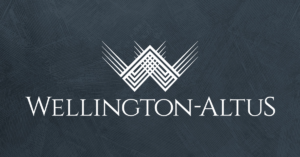It’s easy to put off retirement planning.
Retirement has a way of arriving sooner than expected. In fact, the COVID-19 pandemic has triggered many Canadians into an earlier than anticipated retirement.
When should individuals start retirement planning?
Today, or whenever possible. Having a retirement plan promotes accountability and formulates a desired goal. Having a retirement plan outlines when a Canadian wants to retire, their desired retirement lifestyle, and identifies risks that may impact achieving such.
Once a Canadian has retirement goals, a retirement plan will hold them accountable to the competing saving versus spending consideration. Save now, to spend later, or spend now, and need to save later, but when?
Canadians who are members of an employer pension plan or group RRSP plan have significantly more retirement savings than those who are not. According to Statistics Canada, in 2018 there were close to 27.4M Canadian individual taxpayers. Only 6M, or roughly 21.9%, contributed to their RRSPs and the median RRSP contribution was $3,130. There is something to be said about automatic, mandatory retirement savings.
Many Canadians are concerned about retirement, having a retirement plan with desired goals promotes saving on a regular basis to achieve such goals.
When do Canadians have to start collecting CPP/OAS?
70 for both CPP and OAS. Most think the answer is 65, yet for both there is the ability to defer to 70.
For CPP, Canadians can choose to trigger CPP between the ages of 60-70. For those that do not require CPP for retirement lifestyle needs, the additional rate of return for each year CPP is deferred is 7.2% (0.6% per month) between the ages of 60-65, and 8.4% (0.7% per month) between the ages of 65-70. What other type of investment can generate those guaranteed rates of return these days?
For OAS, Canadians can elect to defer OAS after the age of 65. Again, for those that do not require OAS for retirement lifestyle needs or perhaps have other sources of income close to the OAS recovery tax threshold (AKA OAS claw-back) the additional rate of return for each year OAS is deferred is 7.2% (0.6% per month).
While no one has a crystal ball, it is worthwhile to consider the need for CPP/OAS income, the state of one’s general health, family longevity, and one’s hypothetical cross-over age in maxing out such benefits.
When can a Canadian contribute to their RRSP or TFSA to start saving for retirement?
RRSP: Any Canadian individual who has earned income, has a valid SIN, and has filed a T1 generates RRSP contribution room. For an individual (self) RRSP, Canadians who have contribution room available can contribute up until December 31st of the year they turn 71, and if they contribute to a spousal RRSP, up until December 31st of the year their spouse turns 71. There is no minimum age to contribute to a RRSP, rather generating earned income and filing a tax return are needed to generate RRSP contribution room. Parents should consider filing T1s for their children who earned income from summer or part-time jobs even if such income was under the federal and provincial/territorial personal amounts to generate RRSP contribution room that can be used in the future.
TFSA: Any Canadian resident, who is 18 years of age or older and has a valid SIN can contribute to a TFSA. There is no maximum age to contribute to a TFSA. While Canadians were initially resistant to utilize a TFSA when they were first introduced a little over a decade ago, Canadians now recognize the many benefits associated with having one. As well, a TFSA is a flexible savings tool that is not just geared to retirement.
What retirement savings buckets are you using?
Every Canadian planning and saving for retirement should consider all of the following vehicles: an employer Pension Plan (if provided), an Employer RRSP/TFSA program (if provided), funding their own RRSP, funding their own TFSA, and Non-registered accounts in addition to the need for Health/Dental, Critical Illness, and Long Term Care Insurance in retirement.
What are the five risks Canadians should be concerned about when living, and enjoying, retirement?
- Inflation – The potential for rising prices to erode purchasing power is the #1 risk to planning for, and living, in retirement. Who remembers when a bag of small chips and can of pop was $0.50 at a corner store?
- Health, or ill health – The cost of pharmaceuticals, health and dental care and long-term care costs have risen significantly over the last two decades.
- Longevity – The risk of running out of money as Canadian retirees are now more active, want more from retirement and are living longer than previous generations. Retirement plans should be mapped out to the ages of 95-100 years of age.
- Market – An unfortunate, ill-timed market drop can significantly hamper retirement in the long-term, particularly when immediate withdrawals are needed. Having a cash wedge or money market component can alleviate this risk somewhat.
- Premature death / Divorce – Anticipated retirement capital is no longer generated, two incomes to pay lifestyle expenses no longer available, or splitting retirement capital in half due to divorce or the breakdown of a relationship can significantly impact retirement. The use of life insurance and working with a competent financial planner and tax advisor in minimizing income taxes will help mitigate this risk.
Wellington-Altus believes in the importance of financial literacy and embracing the role we play in supporting our clients and Canadians in this endeavour. That’s why this month, in honour of the 10th Anniversary of Financial Literacy Month, our AWPG is featuring a Q&A with WA. We’ll be sharing simple, impactful financial planning information sourced from our very own team of advisors and wealth planners on LinkedIn.
Stay tuned to our LinkedIn page as we share content to support #FLM2020 and addresses areas of financial planning.
Find an advisor at https://bit.ly/34O0Pok.

